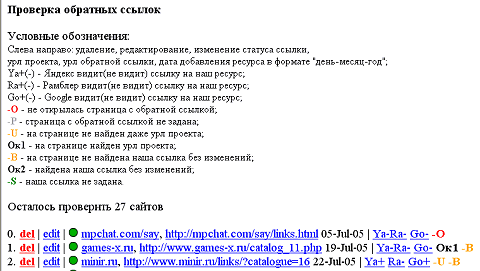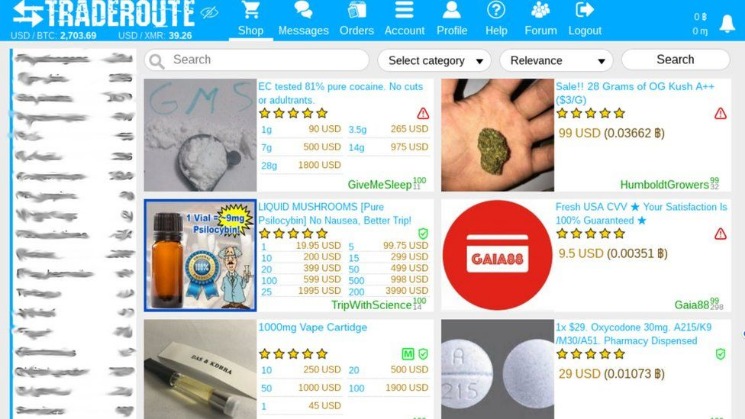
The original AlphaBay, founded by Alexandre Cazes (aka “Alpha02”) in September 2014, was taken down by law enforcement’s Operation Bayonet in July 2017. At the time, AlphaBay was considered to be one of the most popular and comprehensive darknet marketplaces, selling a wide array of illicit and illegal products and services. The story of AlphaBay is emblematic of the broader narrative surrounding dark web marketplaces and the continual conflict between illegal activities and law enforcement. The marketplace attracted a diverse array of vendors, each offering a unique assortment of items. Various drug categories were prominent, including narcotics like cannabis, cocaine, and methamphetamine.

It was a welcome email AlphaBay sent to its new users and vendors with a linked hotmail address in its header. Even today it remains a glittering example of one of the most elaborate and cooperative efforts of international law enforcement agencies to fight cyber criminality. In July 2017, police in the US and Europe, including the US Federal Bureau of Investigation, the Drug Enforcement Agency, Europol and the Dutch National Police, partnered to take down the site. AlphaBay’s servers were seized with the help of authorities in Thailand, Lithuania, Canada, the United Kingdom and France. The operation included the arrest of suspected AlphaBay founder Alexandre Cazes on 5 July, detained on behalf of the US in Thailand. He was held by the Royal Thai Police for approximately seven days before apparently committing suicide while in custody on 12 July 2017.
Still today questions linger about moderator succession and what cybercriminals did next. While DarkOwl generally avoids engaging in or commenting on speculative darknet drama, there are several things about the re-emergence of AlphaBay and DeSnake that don’t add up. The new AlphaBay market’s Tor service has been unstable since its launch, with frequent 503 errors, user registration issues, and login timeouts. After almost two months of operation, the market has a handful of vendors, with only a couple of hundred listings across drugs and fraud goods.
Cannabis, Credit Cards, And Counterfeit Cash
Even if no further accomplices involved with AlphaBay emerge, you never know where one of these cases might go. An alleged administrator of AlphaBay, 26-year-old Canadian Alexandre Cazes, was arrested in Thailand on 5 July following a joint operation between US, Canadian and Thai authorities. Hansa was frequently mentioned, meaning that the authorities were likely able to uncover new criminal activity on Hansa as users migrated to it from AlphaBay. The Dutch National Police took over the Hansa marketplace on 20 June after two men in Germany were arrested and servers in Germany, The Netherlands and Lithuania were seized. According to Europol, there were more than 250,000 listings for illegal drugs and toxic chemicals on AlphaBay.
- The layout was clean and easy to navigate, with dropdown menus and filter options that helped users find what they wanted quickly.
- “He hasn’t really demonstrated anything besides launching a marketplace,” Gray says.
- The banks often suspected that these currency swaps were cash-outs of dirty digital profits.
- AlphaBay launched in September 2014, 11 months after the fall of the Silk Road, and quickly rose to prominence with its claims of better security and improved customer service.
- “I understand if you decide not to but over time you will be proven that we are the original AB and we have never been ‘compromised’ in any way shape or form.”
The Biggest Dark Web Takedown Yet Sends Black Markets Reeling
Even then, he discovered that after transaction fees he could purchase only half a gram of heroin instead of the 2 grams he’d planned on. AlphaBay was relaunched by DeSnake in August 2021 with a new design but with the same admin as before and is once again planning to become the biggest darknet market in history. Active for a decade since 2014, it is a widely used credit card shop used to source stolen credit card information such as dumps, CVVs, Wholesale Accounts. Security researchers have been monitoring forums within the cybercriminal underworld to investigate the leading markets operating in 2024. One of the most common is the exit scam, where a marketplace suddenly disappears and takes everyone’s money with it.
As for DeSnake’s market decentralization project, it appears that all 2021 goals have been met, aside from “choosing an official name for the project” which has been kicked to the end of 2022. Coming up is the testing and finalization of the payment module, which will ostensibly replace AlphaGuard, AlphaBay’s current payment dispute and protections system. Further down the road, DeSnake will get to demoing the project and bringing on a marketing team. Rabenn was captivated by these glimpses into a world of billions of dollars moving in invisible transactions.
Capturing Cazes
Each time, Christin points out, the dark web’s overall business took a temporary dive, but came roaring back more quickly after those setbacks and continued to grow as a whole. AlphaBay, for example, had more than 20 times as many product listings as the original Silk Road. (Some research has found that even bad news about the dark web markets only attracts more users to them.) And AlphaBay’s buyers and customers will eventually find a new home. AlphaBay’s takedown “may give people pause. But will it scare people away? I doubt it.” About a week ago AlphaBay, the dark web’s largest contraband marketplace, went mysteriously offline.
AlphaBay: The Black Market In The Spotlight
Kinger’s ominous threat suggested they knew his real life identity and his citizenship was actually Dutch. When authorities carried out the warrant and arrest in his apartment in Bangkok, his laptop was left unencrypted and the admin account for the market and server logged in. Authorities also simultaneously executed search warrants for the market’s server hardware located in Quebec, Canada. A complaint filed in the District of New Jersey was unsealed today charging Thalha Jubair, a United Kingdom national, with conspiracies to commit computer fraud, wire fraud, and money laundering… If a seller didn’t fulfill orders or was caught violating these rules, they could be banned from the platform. The 26-year-old founder of AlphaBay, Alexandre Caze, was taken into custody by Thai authorities in early July, according to media reports.
Last Member Of Famous Darknet Vendor ‘EastSideHigh’ Sentenced To 28 Months In Prison

According to a 2023 research paper by the Institute of Cyber Security for Society, data shows that after a market closes, dark web users will quickly move to other reputable markets as soon as possible. Operation Bayonet, which would ultimately lead to the shutdown of several prominent marketplaces, began with Dutch police seizing another lesser-known market called Hansa Market. After compromising Hansa, authorities secretly operated the market for almost a month.
DeSnake claims there have been 15,000 user accounts created, 450 vendors registered, and over 400 listings published as of the time of writing. In examining the rise and fall of AlphaBay, it becomes clear that while the marketplace thrived in a niche environment, the inherent vulnerabilities and legal ramifications of deep web transactions could never be fully mitigated. As more marketplaces continued to operate in the shadows, the lessons learned from AlphaBay’s trajectory serve as a crucial reminder of the precarious nature of anonymity in the digital trading world. The landscape of the deep web remains ever-evolving, yet the shadow of AlphaBay lingers on as a testament to its profound impact on online commerce. Overall, AlphaBay facilitated criminal activity, from drug trafficking to large-scale fraud that would have had even more severe consequences if not for the Operation Bayonet that took down the dark web marketplace in 2017.
Darknet Market Noobs

Russian Market has consistently remained one of the most popular and valuable data stores on the dark web. The platform’s activity has increased significantly over the past year, indicating its growing influence and market share in the underground economy. This further complicates monitoring efforts because now you need to search for the related Telegram channels and track activity there and on the marketplace itself. A new system called AlphaGuard was put in place to automatically set up new servers in the event of a takedown and allow users to withdraw funds even if the site is seized. And DeSnake plans to eventually make AlphaBay fully decentralized, further preventing authorities from ever shutting it down for good.
The landscape of digital marketplaces has seen significant evolution over the past decade, with emerging trends reshaping how buyers and sellers connect in the global economy. One of the most notable developments is the rise of alternative markets that operate outside traditional frameworks, often utilizing innovative technologies to enhance privacy, security, and decentralization. These markets are influenced by shifting consumer preferences for anonymous transactions and the demand for decentralized platforms that minimize reliance on centralized authorities. Sellers began gravitating toward platforms that offered features similar to AlphaBay, cloning its model and trying to replicate its success.

Freshtools was established in 2019 and offers various stolen credentials, accounts, and host protocols like RDP. It is considered a go-to site for malware purchasing, providing keyloggers, trojans, and other Malware as a Service products. WizardShop has solidified its status as one of the best data stores in the dark web by providing an impressive quantity of quality data as well as providing a trustworthy, easy to use interface allowing criminals easy and secure buying and selling. With AlphaBay down and no communication from its admins, users suspected that Alpha02 and DeSnake had pulled an exit scam, taking the money and disappearing forever. They began flocking to Hansa, the other marketplace targeted by Operation Bayonet, boosting its membership by up to 6,000 new users a day.
Law enforcement agencies continue to monitor and investigate dark web marketplaces to prevent their resurgence, emphasizing the importance of international cooperation in tackling cybercrime. The AlphaBay case underscored the ongoing efforts to combat illicit online markets and protect lawful internet use. In July 2017, law enforcement agencies around the world collaborated to dismantle the operations of AlphaBay Market. Authorities executed coordinated takedown operations, seizing servers and arresting operators and users involved in illicit trade.
One notable example is Alphabay Market, which gained prominence as an anonymous marketplace catering to a diverse user base seeking alternative channels for commerce. The Alphabay market, once a major player in the underground digital marketplace scene, exemplifies the allure and challenges of decentralized market structures. Although it faced shutdowns, its rise illustrated the potential for parallel markets to operate outside mainstream regulatory oversight, often emphasizing privacy and autonomy for users.
He was driven to rebuild AlphaBay, he says, after reading about an FBI presentation on the circumstances of Cazes’ arrest that he deemed disrespectful. “AlphaBay name was put in bad light after the raids. I am here to make amends to that.” According to several sources AlphaBay 2.0 was shutdown in 2023 as the result of AlphaGuard being deployed. The administrator, DeSnake, for unknown reasons, was unable to sign off in time, leading to the end of AlphaBay 2.0. Though the creator and administrator of AlphaBay was arrested, his second in command, known as “DeSnake” was still active. This was a undercover Europol mission, with shared intel between the Dutch national police, and later with the American authorities.



